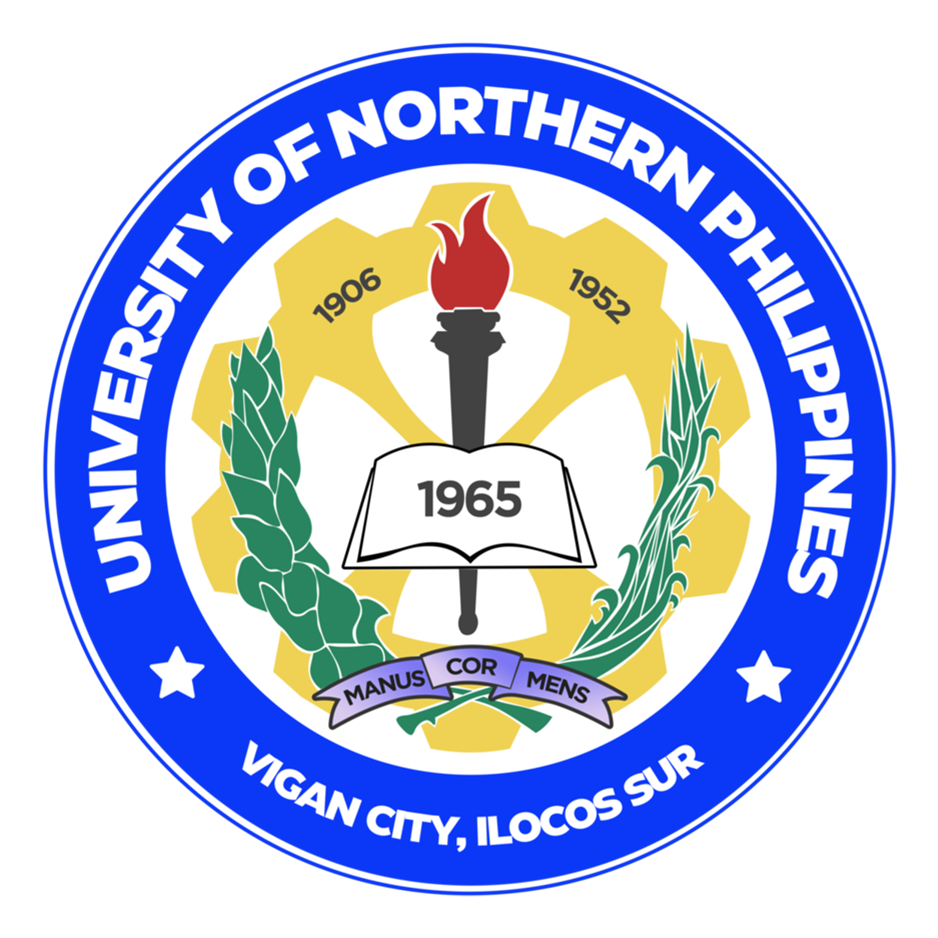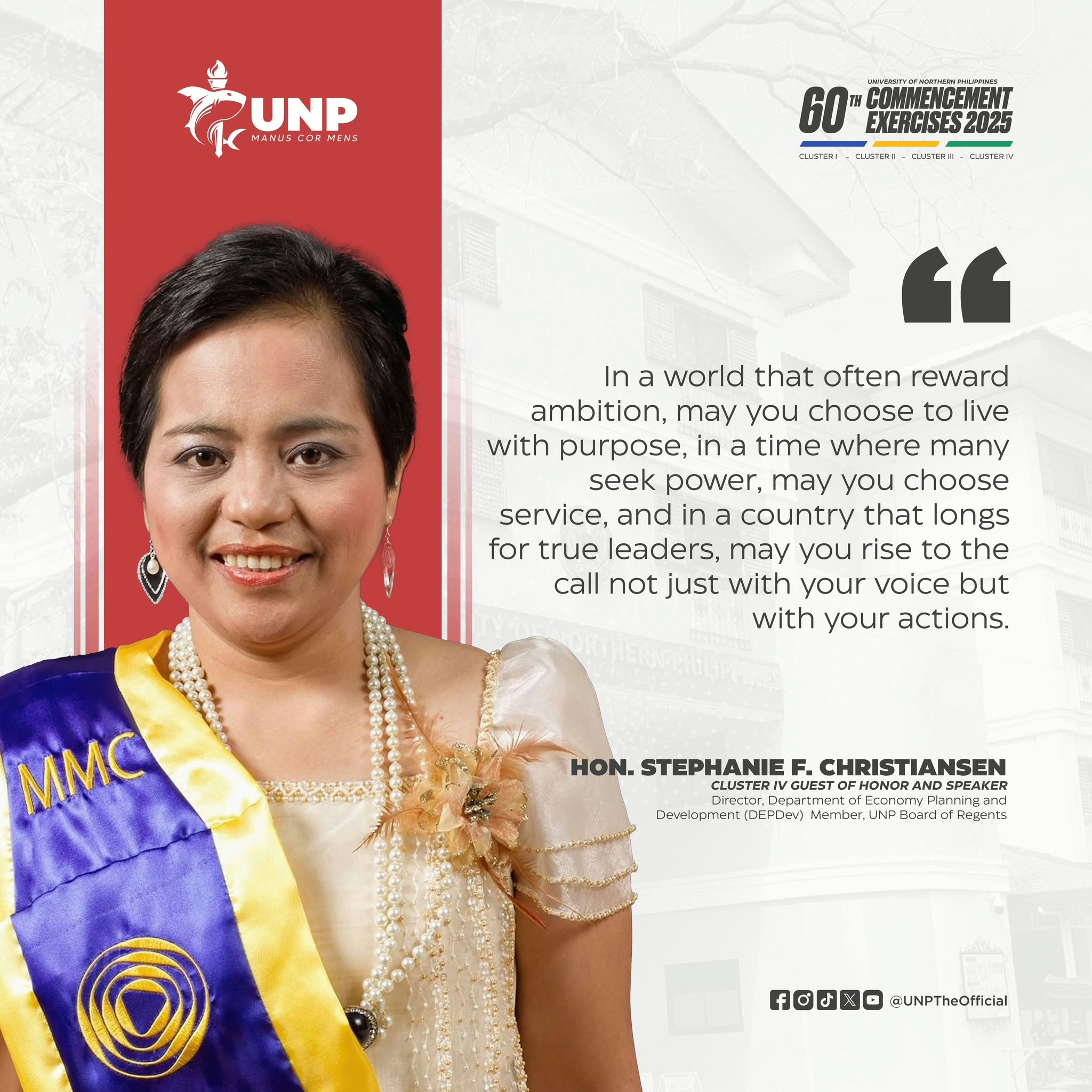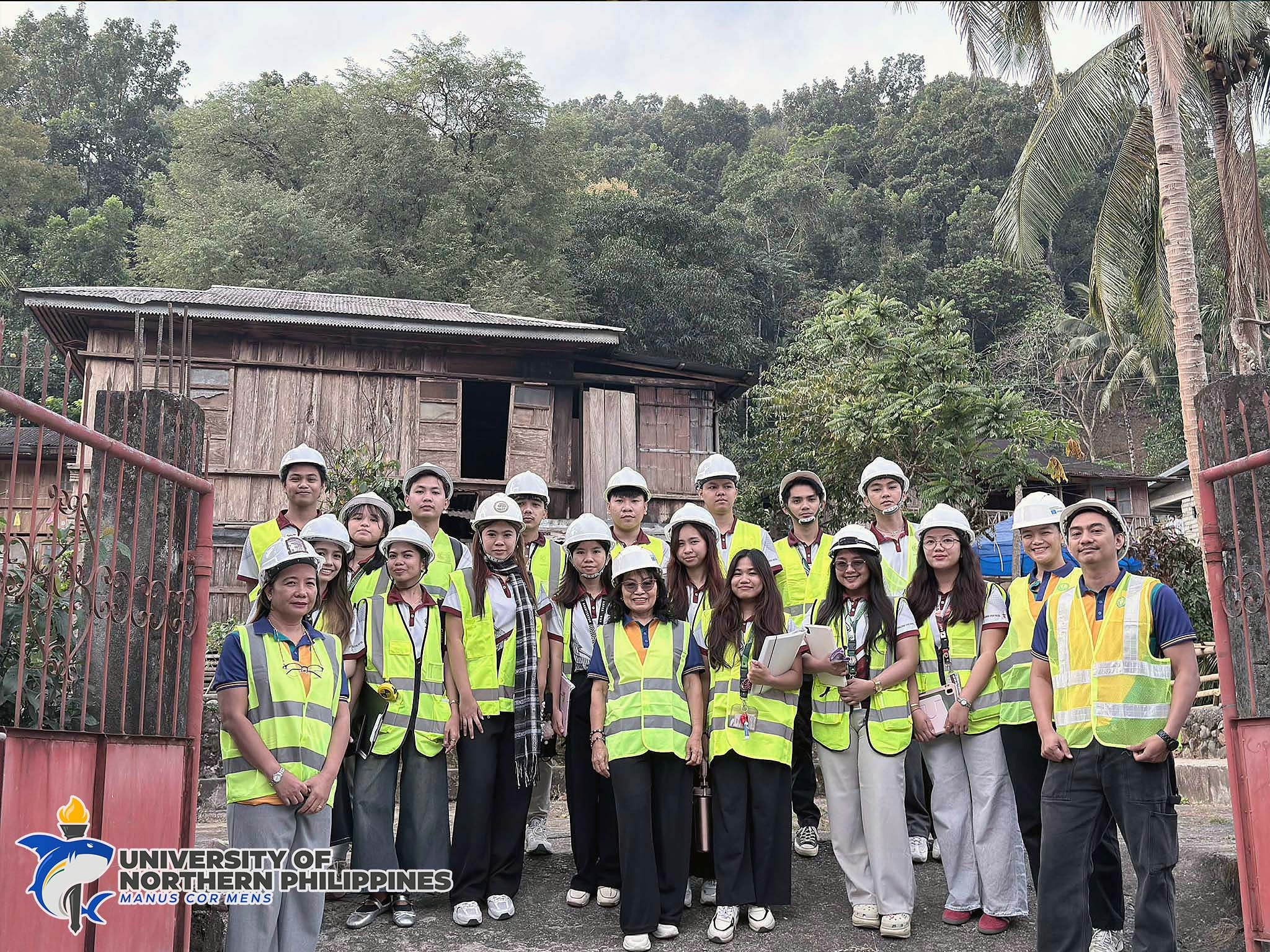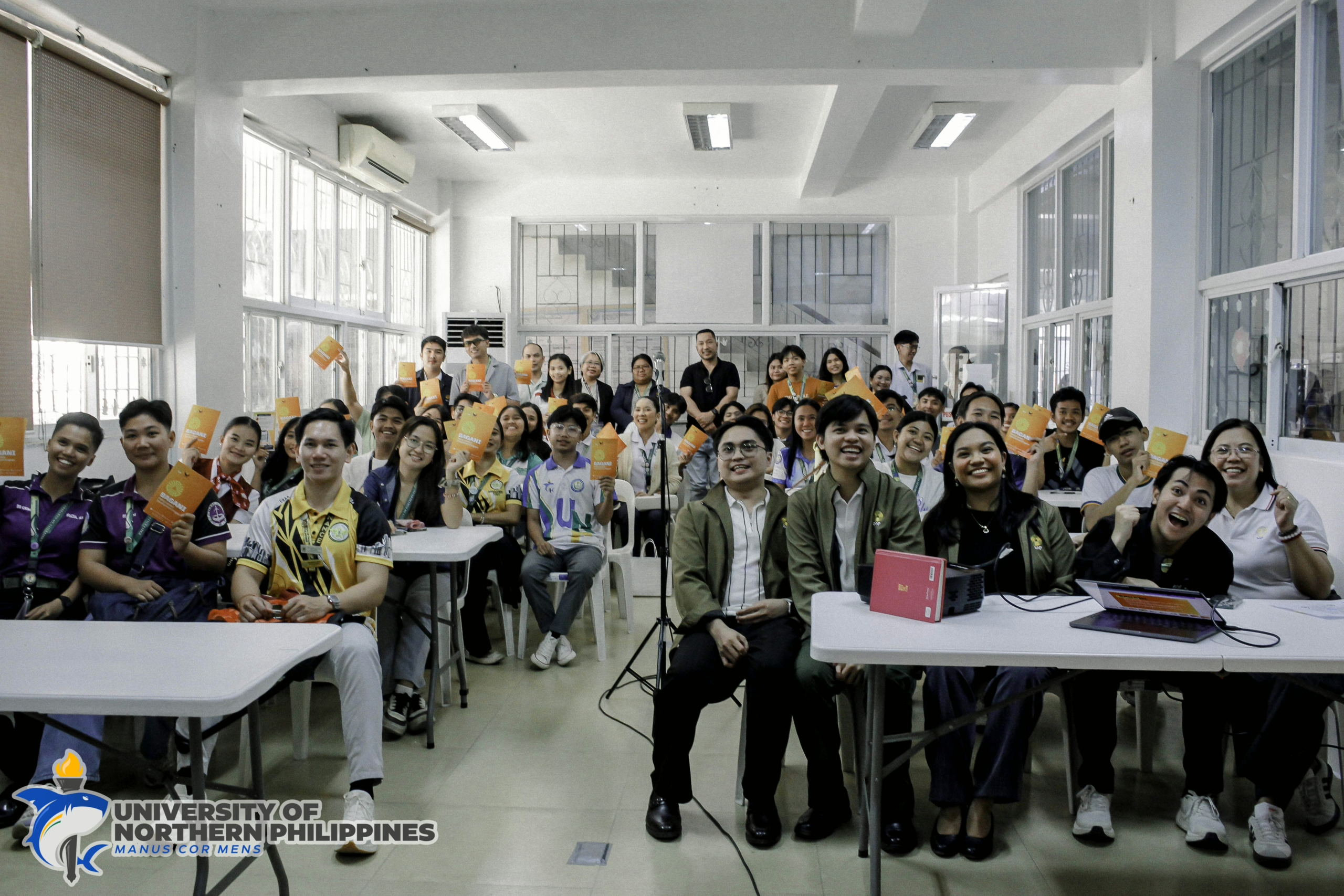In a heartfelt and stirring commencement address on June 5, 2025, Hon. Stephanie F. Christiansen, Director of the Department of Economy (DEPDev), urged the graduating class to look beyond personal achievement and embrace their roles as catalysts for national transformation. Christiansen’s speech resonated deeply at the UNP Gymnasium, challenging the graduates to ask themselves: “How can I, in my current role, bring change to people?”
Cluster IV, encompassing the College of Arts and Sciences, College of Teacher Education, and the College of Communication and Information Technology during the 60th Commencement Exercises, united as one in celebration of this yearly graduation ceremony, showcasing the new clustering system.
“In a world that often reward ambition, may you choose to live with purpose, in a time where many seek power, may you choose service, and in a country that longs for true leaders, may you rise to the call not just with your voice but with your actions.” — This powerful statement is a timely reminder of the values that truly matter in our fast-paced, achievement-driven society. Ambition, while often celebrated, can sometimes lead us to focus solely on personal gain, forgetting the deeper reasons for our pursuits. Choosing to live with purpose means aligning our actions with values that transcend self-interest—values like compassion, integrity, and a genuine desire to make a positive impact.
In an era where power is frequently sought as an end in itself, the call to service stands out as both radical and necessary. Service requires humility and empathy; it asks us to put others before ourselves and to use whatever influence we have to uplift those around us. True leadership, as the quote suggests, is not about titles or recognition, but about the quiet, consistent actions that improve lives and communities.
Dr. Christiansen, in her message was the sobering reality that Region 1 holds the lowest literacy rate in Luzon. Christiansen called this a “wake-up call,” imploring the new graduates to see this not as a statistic, but as a mission. She encouraged them to reach out to their communities—whether through voluntary activities, teaching in barangay halls, or even under the shade of a tree. She highlighted the importance of using both traditional media like radio and modern tools like mobile apps to make learning accessible to everyone, regardless of location or age.
“It is never too late to learn, you are never too old, you’re never too far behind,” Christiansen emphasized, addressing not just the graduates, but also teachers, volunteers, and parents. She reminded them that lifting someone through learning restores dignity, confidence, and hope—gifts that ripple through entire communities.
Dr. Stephanie also spoke passionately about self-reliance, redefining it not as mere independence, but as the discipline, resilience, and integrity to be someone others can depend on. She cautioned against entitlement, urging the graduates to become a generation that empowers, rather than blames.
As the graduates’ step into diverse futures—as teachers, scientists, entrepreneurs, or public servants—Christiansen called on them to remember their roots, to serve those who once supported them, and to be a beacon of hope for those still struggling. “Let your success be more than a personal victory,” she said, “let it be your contribution to a better country.”
In closing, Christiansen encouraged the graduates to live with purpose, to choose service over power, and to rise as true leaders—reminding them that the journey of service and giving back is the true measure of success.
Article by Rocelle Villanueva and Eden Beronilla.




